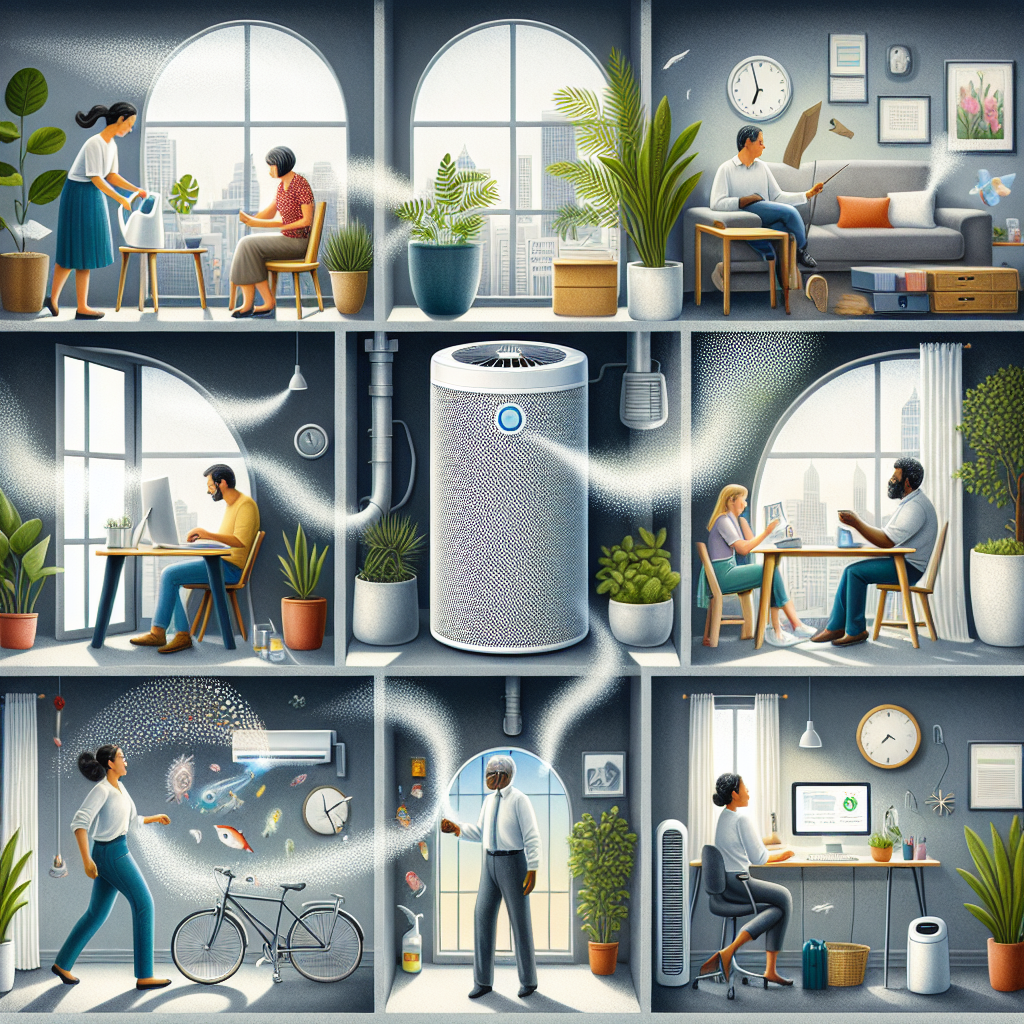In our modern lives, we often focus on what we consume, whether it’s through our diets, products, or even the media we engage with. Yet, one critical aspect that frequently gets overlooked is the air we breathe. Indoor air quality (IAQ) plays a significant role in our overall health and well-being. This article delves into the importance of clean indoor air, how it affects our health, and practical steps to achieve and maintain it.
Understanding Indoor Air Quality (IAQ)
Indoor air quality refers to the quality of air within and around buildings, particularly as it relates to the health and comfort of occupants. Poor IAQ can stem from various sources, including dust, mold, pollen, pet dander, household cleaning products, and even construction materials. According to the Environmental Protection Agency (EPA), indoor air can often be more polluted than outdoor air, making the need for clean air even more pressing.
The Connection Between IAQ and Health
Respiratory Issues
One of the most immediate ways poor indoor air quality impacts our health is through respiratory issues. Exposure to allergens and irritants in the air can trigger asthma, allergies, and other respiratory problems. Symptoms may include sneezing, coughing, shortness of breath, and fatigue, significantly affecting daily life and productivity.
Long-term Health Effects
The consequences of poor IAQ can extend beyond immediate discomfort. Prolonged exposure to indoor pollutants can lead to chronic health issues, including cardiovascular disease, lung cancer, and other serious conditions. Studies have shown that individuals living in poorly ventilated homes or those exposed to high levels of indoor air contaminants are at a higher risk for these issues.
Mental Well-being
Interestingly, clean indoor air doesn’t just benefit our physical health – it also plays a role in our mental well-being. According to recent studies, poor IAQ can lead to increased stress, fatigue, and even mood swings. Clean air, on the other hand, can enhance our cognitive functioning and overall mood, creating a more productive and harmonious living environment.
How to Achieve Clean Indoor Air
Now that we understand the importance of maintaining a healthy indoor environment, let’s explore practical steps to enhance indoor air quality.
1. Ventilation is Key
Good ventilation allows fresh air to circulate while expelling stagnant, polluted air. Open windows when weather permits, and consider using exhaust fans in kitchens and bathrooms to remove excess moisture and contaminants.
2. Invest in Air Purifiers
Air purifiers equipped with HEPA filters can significantly reduce airborne contaminants. They capture allergens, dust, and pet dander, helping to create a cleaner indoor environment. When choosing an air purifier, consider the size of the room and the specific pollutants you aim to target.
3. Regular Cleaning and Maintenance
Keeping your living space clean is essential for maintaining good IAQ. Regular vacuuming, dusting, and mopping can help eliminate dust and allergens. Don’t forget about your HVAC systems; clean or change filters regularly to keep conditioning systems efficient and effective.
4. Choose Non-toxic Cleaning Products
Many conventional cleaning products contain volatile organic compounds (VOCs) that can pollute indoor air. Opt for eco-friendly and non-toxic cleaning alternatives to minimize exposure to harmful chemicals. Additionally, always use products according to the manufacturer’s instructions and ensure proper ventilation when cleaning.
5. Houseplants for Better Air Quality
Not only do houseplants enhance the aesthetic of your room, but many also purify the air. Plants like spider plants, peace lilies, and snake plants can help remove indoor pollutants. However, be mindful if you have allergies or sensitivities to certain plants.
6. Monitor Humidity Levels
High humidity can foster mold growth, while low humidity can lead to dry skin and respiratory issues. Aim to keep indoor humidity levels between 30% and 50%. Dehumidifiers or humidifiers can help maintain these levels comfortably.
Conclusion: Breathe Easy for a Healthier Life
Clean indoor air isn’t just a luxury; it’s a necessity for good health and well-being. By understanding the importance of indoor air quality and taking steps to improve it, you can create a healthier, more comfortable living environment for yourself and your loved ones.
As we go about our busy lives, it’s essential to remember that the air we breathe significantly impacts our health. So breathe easy and embrace the simple changes you can make today to achieve clean indoor air. Your lungs, and your mind, will thank you!


